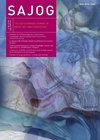妊娠期糖尿病的危险因素:南印度沿海地区一项基于医院的配对病例对照研究
IF 0.4
Q4 OBSTETRICS & GYNECOLOGY
South African Journal of Obstetrics and Gynaecology
Pub Date : 2020-09-15
DOI:10.7196/SAJOG.2020.V26I1.1518
引用次数: 19
摘要
背景鉴于妊娠期糖尿病(GDM)患病率的上升以及早期怀疑和及时诊断的重要性,不同地区报告了不同的风险因素。这就需要在亚人群和不同地理区域进行多个区域研究,以量化GDM的决定因素。客观的确定GDM的风险因素。方法。根据2018年1月至2018年12月期间接受住院治疗的所有被诊断为GDM的女性的妊娠记录,在南印度沿海的一家三级护理妇产医院进行了一项病例对照研究。131例病例按1:1的比例与131例对照组配对。后果来自农村地区的妇女和月收入≤2万印度卢比、体重指数(BMI)>23 kg/m2、羊水过多(一种趋势)、妊娠高血压(一种倾向)、羊水过少(一种趋向)以及妊娠间隔23 kg/m2和妊娠间隔<2年的妇女是重要的危险因素,而在这一人群中,那些在前几次怀孕中阴道分娩的人患GDM的风险降低。需要进行更大规模的研究来证明其他因素的重要性。本文章由计算机程序翻译,如有差异,请以英文原文为准。
Risk factors of gestational diabetes mellitus: A hospital-based pairmatched case-control study in coastal South India
Background. In the light of the rise in prevalence of gestational diabetes mellitus (GDM) and the importance of early suspicion and prompt diagnosis, different regions have reported different risk factors. This warrants multiple regional studies in sub-populations and diverse geographic areas to quantify determinants of GDM. Objective. To determine risk factors of GDM. Methods. A case-control study was conducted in a tertiary care maternity hospital in coastal South India based on pregnancy records of all those women diagnosed with GDM who received in-patient care between January 2018 and December 2018. There were 131 cases pairmatched for age in the ratio of 1:1 with 131 controls. Results. Women from rural areas and those with a monthly income ≤INR20 000, body mass index (BMI) >23 kg/m2 , polyhydramnios (a trend), pregnancy-induced hypertension (a trend), oligohydramnios (a trend) and a gap between pregnancies of 23 kg/m2 and a spacing gap of <2 years between pregnancies were significant risk factors, whereas those having had a vaginal birth in previous pregnancies in this population had a diminished risk of developing GDM. A larger study is required to demonstrate significance in other factors.
求助全文
通过发布文献求助,成功后即可免费获取论文全文。
去求助
来源期刊

South African Journal of Obstetrics and Gynaecology
Medicine-Obstetrics and Gynecology
CiteScore
0.40
自引率
0.00%
发文量
5
审稿时长
15 weeks
期刊介绍:
The SAJOG is a tri-annual, general specialist obstetrics and gynaecology journal that publishes original, peer-reviewed work in all areas of obstetrics and gynaecology, including contraception, urogynaecology, fertility, oncology and clinical practice. The journal carries original research articles, editorials, clinical practice, personal opinion, South Africa health-related news, obituaries and general correspondence.
 求助内容:
求助内容: 应助结果提醒方式:
应助结果提醒方式:


